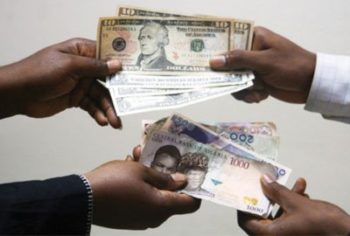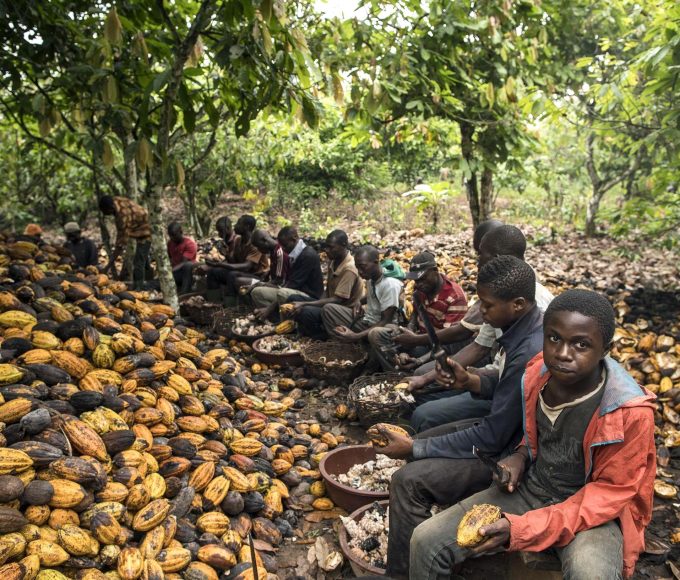
CBN is Largely Depleting Nigeria’s Dollar Reserves to Improve Naira – Bloomberg

Nigeria’s foreign exchange reserves are dwindling at an alarming rate as reported by Bloomberg. Since March 18, the country’s liquid reserves have reportedly declined by 5.6%. This decline coincides with the naira’s recent recovery against the dollar.
“Nigeria is burning through foreign-exchange reserves at a rate not seen in four years, raising concerns that the central bank is depleting its dollar holdings to support the naira after pledging it would allow the currency to float more freely”, Bloomberg noted.
The report added: “Liquid reserves declined 5.6% since March 18, when the naira started its rebound from record-low levels against the dollar to $31.7 billion as of April 12, according to Bloomberg’s calculations based on the latest available data from the Central Bank of Nigeria. That’s the biggest decline in a similar period since April 2020, according to data compiled by Bloomberg.”
Despite the recent gains of the naira, the prices of commodities have remained rather high. Nigerians are raising concerns that the naira’s appreciation is not translating to economic stability, as inflation continues to rise.
In a recent development, social media erupted with reactions after news circulated about a purported drop in the price of rice in Nigeria from 84,000 Naira to 60,000 Naira. While some expressed optimism, others remained sceptical and questioned the authenticity of the reported decrease.
An X (Twitter) user, identified as That Naija Guy, shared firsthand experience contradicting the news.
“just came back from the market. I can confirm to you that the purported decrease in the price of rice from 84 to 57k is a big fat lie.
Rice currently sells for 82k to 90k depending on the brand of rice you are buying”, he shared.
The disconnect between the naira’s appreciation and economic stability poses serious challenges to Nigeria’s shaky economy. While the Nigerian naira has persisted in its upward trajectory against the United States dollar, inflationary pressures have continued to weigh on the economy.
According to a Premium Times report, the naira closed at N1,136.04/$1 on Monday, marking a 0.6 percent appreciation from the previous session’s rate of N1,142.38.
Throughout the trading day, the currency fluctuated between a high of N1,000 and a low of N1,227.00 before settling at N1,136.0/$1. The parallel market also witnessed an appreciation in the value of the naira, with Bureau De Change operators reporting rates of N1,020 and above for buying and N1,030 and above for selling, compared to N1,100/$1 on Sunday.
The recent improvement is due to ongoing efforts by the government to stabilise the currency and address inflationary pressures following recent declines. This includes the Central Bank of Nigeria’s sale of $10,000 to each Bureau De Change operator at lower rates.
According to Bloomberg, the efforts also involved massively burning through the nation’s foreign exchange. While the alleged FX tactics could help stabilise the currency and mitigate short-term volatility, they may also limit the bank’s ability to address other economic challenges, such as stimulating export growth, attracting foreign investment, and managing inflationary pressures.
This could, in the long term, further erode the purchasing power of the citizenry and plunge the country into deeper economic hardships.
I just came back from the market.
I can confirm to you that the purported decrease in the price of rice from 84k to 57k is a big fat lie.
Rice currently sells for 82k to 90k depending on the brand of rice you are buying. pic.twitter.com/Gb7Sn3LDro
— That Naija Guy™ (@IamThatNaijaGuy) April 16, 2024
About The Author
Related Articles
Malian Army Says Dozens of Militants Killed in Airstrikes in Segou Region
Mali’s armed forces say they have killed about twenty suspected militants during...
ByWest Africa WeeklyFebruary 19, 2026Nigeria Approves 33 New Universities While Education Quality and Jobs Remain in Crisis
Nigeria has approved 33 new universities, bringing the total number of sanctioned...
ByWest Africa WeeklyFebruary 19, 2026Gabon Suspends Social Media “Until Further Notice” Amid Rising Unrest
Gabon’s media regulator has announced the suspension of social media platforms nationwide,...
ByWest Africa WeeklyFebruary 18, 2026Côte d’Ivoire Feeds the World’s Chocolate Industry, But When Prices Shift, Cocoa Farmers Are Left With Rotting Harvests and No Income
Côte d’Ivoire produces nearly half of the world’s cocoa, a crop that...
ByWest Africa WeeklyFebruary 18, 2026











